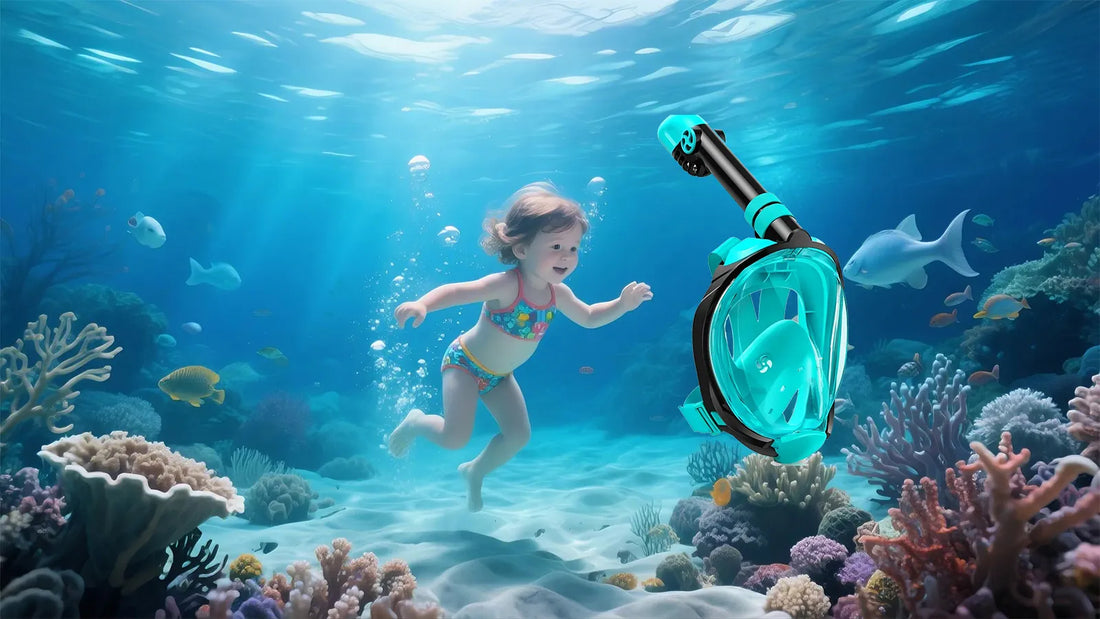Scuba diving is an exhilarating experience that allows you to explore the wonders of the underwater world. However, proper preparation is crucial to ensure your safety and enjoyment. This guide will walk you through the essential steps to prepare for scuba diving, covering everything from physical fitness to equipment checks.
Understand the Basics of Scuba Diving
Before you dive into the ocean, it's important to understand the basics of scuba diving. This includes knowing the equipment you'll use, the physics of diving, and the potential risks involved. Familiarize yourself with terms like buoyancy, decompression, and equalization. Taking a beginner's course can provide you with the foundational knowledge you need.
Get Certified
One of the most important steps in preparing for scuba diving is getting certified. Certification courses are designed to teach you the necessary skills and safety procedures. These courses typically include both theoretical and practical components, ensuring you're well-prepared for your underwater adventures. Make sure to choose a reputable organization for your certification.
Assess Your Physical Fitness
Scuba diving can be physically demanding, so it's crucial to assess your fitness level before diving. Ensure you're in good health and free from any medical conditions that could pose a risk underwater. Regular exercise, particularly cardiovascular and strength training, can help improve your stamina and overall fitness. Consult with a healthcare professional if you have any concerns.
Learn Proper Breathing Techniques
Breathing underwater is different from breathing on land, and mastering proper techniques is essential for a safe dive. Practice slow, deep breaths to conserve air and reduce the risk of hyperventilation. Learning to control your breathing can also help you maintain buoyancy and stay calm in potentially stressful situations.
Choose the Right Equipment
Having the right equipment is crucial for a successful dive. This includes a mask, fins, wetsuit, buoyancy control device (BCD), regulator, and tank. Make sure all your gear fits properly and is in good condition. It's also important to familiarize yourself with your equipment before diving, so you know how to use it effectively in the water.
Practice in a Controlled Environment
Before heading out to open water, practice your skills in a controlled environment like a swimming pool. This allows you to get comfortable with your equipment and practice essential skills like buoyancy control, mask clearing, and emergency procedures. Practicing in a safe environment can boost your confidence and prepare you for real-world diving scenarios.
Plan Your Dive
Proper planning is key to a safe and enjoyable dive. Research your dive site, including the depth, currents, and potential hazards. Create a dive plan that outlines your objectives, maximum depth, and bottom time. Always dive with a buddy and establish clear communication signals before entering the water. Having a well-thought-out plan can help you avoid unexpected challenges.
Check Weather and Water Conditions
Weather and water conditions can significantly impact your diving experience. Check the forecast and water conditions before your dive to ensure they're suitable. Be aware of factors like visibility, temperature, and currents. If conditions are unfavorable, it's better to postpone your dive than risk your safety.
Stay Hydrated and Eat Well
Proper hydration and nutrition are essential for maintaining your energy levels and focus during a dive. Drink plenty of water before and after your dive, and avoid alcohol and caffeine, which can dehydrate you. Eat a balanced meal that includes carbohydrates, proteins, and healthy fats to fuel your body for the physical demands of diving.
Perform a Pre-Dive Safety Check
Before entering the water, perform a pre-dive safety check to ensure all your equipment is functioning correctly. This includes checking your tank pressure, regulator, BCD, and mask. Make sure your dive buddy also performs a safety check, and review your dive plan one last time. A thorough safety check can prevent equipment malfunctions and ensure a smooth dive.
Stay Calm and Relaxed
Staying calm and relaxed is crucial for a successful dive. Anxiety and stress can lead to rapid breathing and poor decision-making. Practice relaxation techniques like deep breathing and visualization to help you stay calm underwater. Remember, diving is meant to be an enjoyable experience, so take your time and enjoy the underwater world.
Respect Marine Life
When diving, it's important to respect marine life and their habitats. Avoid touching or disturbing coral reefs and marine animals. Be mindful of your fins and equipment to prevent accidental damage. Practicing good underwater etiquette helps preserve the ocean's ecosystems for future generations.
Post-Dive Care
After your dive, take care of your body and equipment. Rinse your gear with fresh water to remove salt and debris, and store it properly to prevent damage. Hydrate and refuel your body with water and a nutritious meal. Monitor yourself for any signs of decompression sickness, and seek medical attention if necessary. Proper post-dive care ensures you're ready for your next underwater adventure.
Scuba diving offers a unique opportunity to explore the underwater world, but preparation is key to a safe and enjoyable experience. By following these steps, you'll be well-equipped to dive with confidence and make the most of your underwater adventures. So, gear up, dive in, and discover the incredible beauty that lies beneath the surface.

